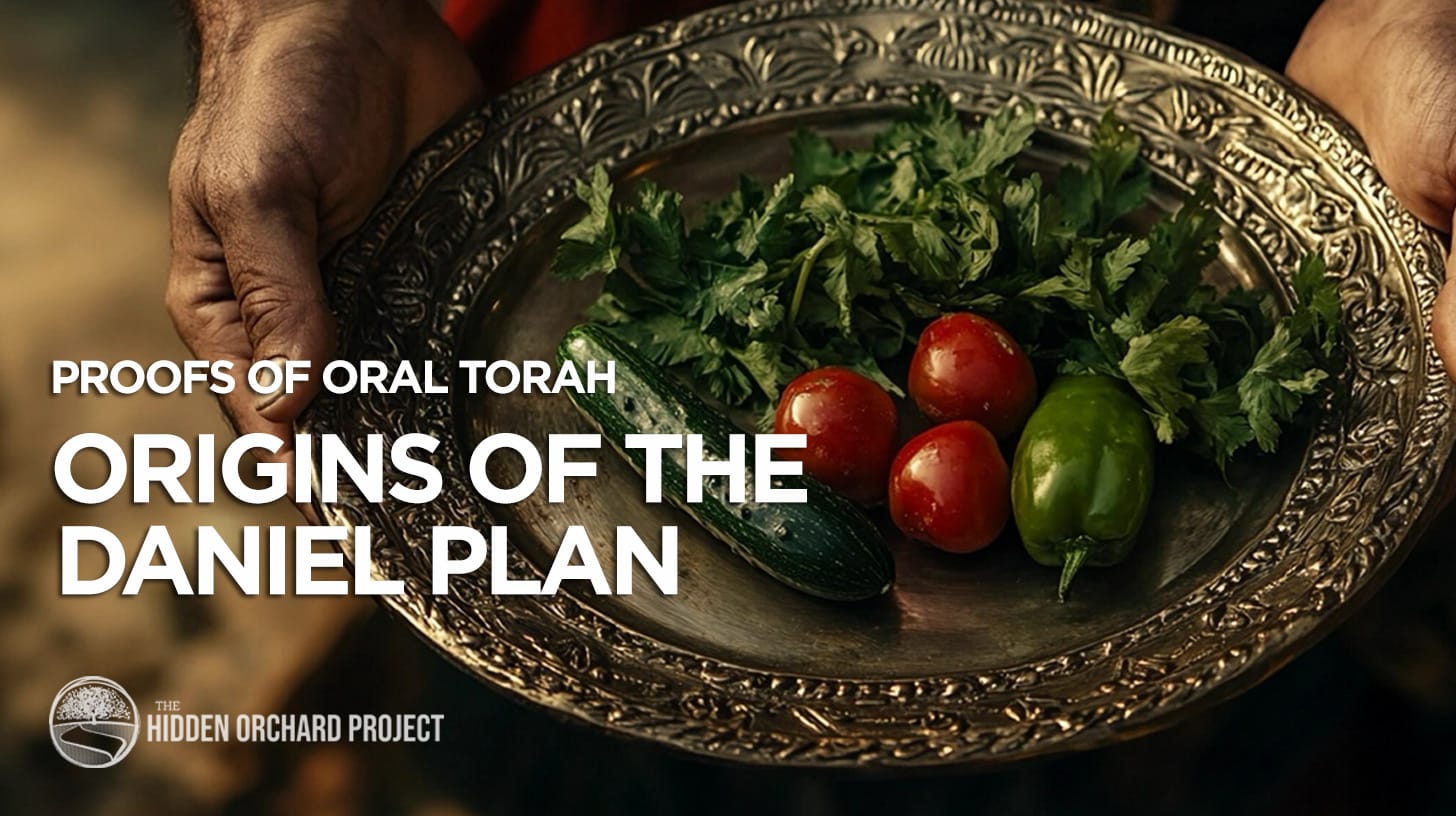Proofs of Oral Torah: Origins of The Daniel Plan
In this series, we're challenging the assumption that an oral tradition—specifically, the Jewish oral tradition—is irrelevant to Biblical understanding and application. In this episode, we'll explore a deeper insight into Daniel's dietary problems in Babylon and the origins of his solution.

In this series, we're challenging the assumption that an oral tradition—specifically, the Jewish oral tradition—is irrelevant to Biblical understanding and application.
In this episode, we'll explore a deeper insight into Daniel's dietary problems in Babylon and the origins of his solution.
The Prophet Daniel In Babylon
Around the year 605 BCE, Daniel, along with his friends Hananiah, Mishael, and Azariah, found themselves exiled from the Holy Land—forced to live amid a pagan empire. Remaining Torah-observant in exile would become an enduring issue for Jews in later centuries. Daniel and his friends found themselves in a relatively new reality with unique challenges.
Particularly, it was the idolatrous world of Nebuchadnezzar’s palace that provided significant challenges for observant Jews. On the one hand, the food was plentiful. Extravagant and diverse. On the other, it was mostly forbidden according to Torah.

"Biblically" Kosher
This would be no problem for those who ascribe to the idea of "Biblically Kosher," a perspective that disregards Jewish tradition and insight—opting to uphold a few food prohibitions at a categorical level. Adherents to this idea would simply avoid the obvious foods, like, pork and shellfish—but the rest would be fair game.
The concept of "Biblically Kosher" represents a newer approach, one separate from the teachings of the Torah. This is an issue because it often does not include the dimension of spiritual defilement, a significant aspect of Jewish dietary laws (Kashrut)¹.
Daniel's Problem
What was Daniel's problem with the food in Babylon? The text indicates that the avoidance of defilement was among his primary concerns:
Daniel resolved not to defile himself with the king’s food or the wine he drank, so he sought permission of the chief officer not to defile himself, - Daniel 1:8
The kind of defilement in reference is what we'll call spiritual, acquired through participation in, and/or the consumption of food and drink involved in idolatrous rituals. The result of contact with these is a kind of spiritual short-circuiting that sabotages one's holiness², causing separation from the Creator.
Daniel proposed an interesting solution to avoid this outcome: they would only eat vegetables and drink water.
This idea inspired the "Daniel Plan," a dietary trend made popular by evangelical Pastor Rick Warren—seeking to infuse Biblical wisdom into modern dietary practices. Yet, many are likely unaware that Daniel's solution seems to have originated from within Jewish oral tradition.
We might ask, where did Daniel get this idea that vegetables, ostensibly raw, would help him avoid the problem of defilement?
The suggestion seems, at first glance, merely ascetic. But beneath this idea lies a thread of wisdom that, to me, reveals an operative Jewish oral tradition already active in his time.
Food Sacrificed to Idols
The Written Torah specifically forbids the consumption of meat sacrificed to idols:
You must not make a covenant with the inhabitants of the land, for they will lust after their gods and sacrifice to their gods and invite you, and you will eat of their sacrifices. - Exodus 34:15
In Deuteronomy (12:21), the Torah lays down the foundations of kosher slaughter. This may be easier to maintain when you live in ancient Israel. However, the specifics of a navigating foreign food system—where much of the supply chain was tainted by some degree of contact with idolatry—that's complicated!
Even today, in exile, discerning the permissible from the forbidden remains a persistent challenge for leaders to mitigate as food-formulations and ingredients change on a near-weekly basis.
From our article on Haggai's quiz³, we already see some degree of purity observance in place during the late exilic period, but where did Daniel find the clarity to refuse? How did he know that vegetables offered a path to purity?

